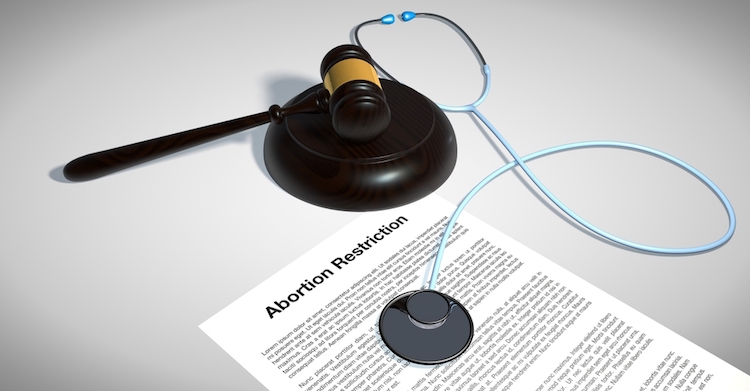DOJ relies on ruling against Eugene Debs in seeking to block Texas abortion law

Image from Shutterstock.
The U.S. Department of Justice is relying on an 1894 U.S. Supreme Court ruling involving American Railway Union leader Eugene Debs in its lawsuit seeking to block a restrictive Texas abortion law.
Reuters has a report on how the Debs decision comes into play in the DOJ lawsuit, which asserts that the ban on abortions after about six weeks of pregnancy unconstitutionally conflicts with the statutory and constitutional responsibilities of the federal government.
Texas sought to stop abortion providers from suing the state to block the law by switching enforcement to private plaintiffs who are authorized to file civil suits against those who knowingly help pregnant women violate the law.
But the DOJ contends that it has a “profound sovereign interest” in enforcing federal constitutional rights when a state seeks to strip people of their right to challenge an unconstitutional law.
“Enforcing that sovereign interest through litigation, however, requires the federal government to establish its right to sue in federal court,” Reuters reports. “And that’s where the Debs case comes in.”
The 1895 decision, In re Debs, upheld an injunction obtained by the federal government to stop a boycott of all railroads using Pullman Palace Car Co. rail cars by union members protesting pay cuts, according to Reuters. Debs had challenged the injunction after he was held in contempt for violating its terms.
The Supreme Court decision said the federal government’s interest in protecting interstate commerce and mail delivery justified the injunction. But the court also “offered a sweeping view of the interests of the executive branch in protecting public rights,” Reuters said.
“The obligations which [the government] is under to promote the interest of all and to prevent the wrongdoing of one, resulting in injury to the general welfare, is often of itself sufficient to give it a standing in court,” the Supreme Court said in the Debs case.
The DOJ later used the decision to justify suits blocking civil rights violations, arguing that the 14th Amendment violations were interfering with interstate commerce.
In an apparent bid to show standing in the Texas abortion case, the DOJ argues that the abortion restrictions interfere with interstate commerce. The law outlaws many of the commercial services that provide abortions and aid women seeking those services, forcing women to travel out of state, according to the suit.
The law may apply to insurance companies that cover abortion services, to banks facilitating money transfers to reimburse women seeking restricted abortions, and to sales of medical equipment used for outlawed abortions, according to the suit.
The Reuters story said the Debs precedent has been called into question by two federal appeals court.
In 1977, the 4th U.S. Circuit Court of Appeals at Richmond, Virginia, held that the federal government couldn’t sue to protect the rights of people with mental disabilities. And in 1980, the 3rd Circuit at Philadelphia ruled that the United States couldn’t sue Philadelphia and its officials for alleged 14th Amendment violations in police stops.
“We’ll see if that 1895 Debs decision still packs some heat,” according to Reuters.
See also:
ABAJournal.com: “How could the DOJ counter Texas abortion restrictions? Law prof suggests prosecution”
ABAJournal.com: “Abortion providers ask Supreme Court to block Texas heartbeat law from taking effect”
ABAJournal.com: “Citizen plaintiffs can sue to enforce Texas fetal heartbeat bill; could Uber drivers be liable?”
ABAJournal.com: “SCOTUS formally rejects request to block Texas abortion ban”
ABAJournal.com: “Texas’ 6-week abortion ban takes effect with no Supreme Court intervention”
ABAJournal.com: “7th Circuit refuses to block Indiana abortion restrictions”



